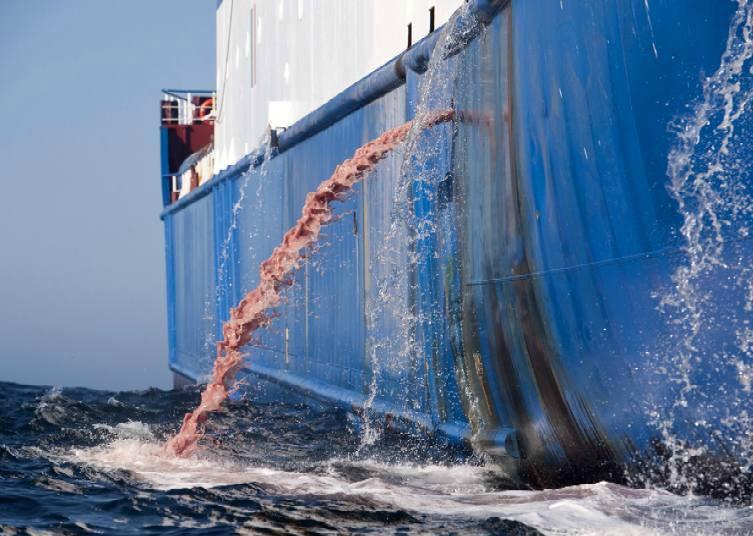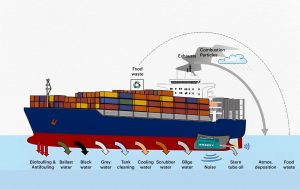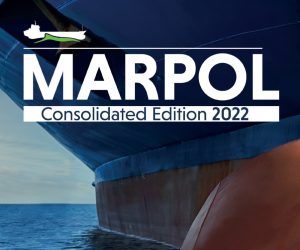Environmental awareness is crucial for seafarers, as they play a vital role in protecting the world’s oceans from pollution and degradation. With the maritime industry being a significant contributor to marine pollution, it is imperative for maritime professionals to adopt eco-friendly practices and comply with international regulations aimed at preserving marine ecosystems. This article explores the importance of environmental awareness among seafarers, highlights sustainable shipping practices, discusses relevant regulations, and emphasizes the role of seafarers in safeguarding our oceans.
The maritime sector is responsible for transporting approximately 90% of global trade by volume. However, this activity comes with environmental costs, including oil spills, plastic pollution, and greenhouse gas emissions. According to the International Maritime Organization (IMO), shipping contributes about 2-3% of global greenhouse gas emissions. As such, seafarers must be equipped with the knowledge and skills to mitigate these impacts.
Seafarers witness firsthand the effects of human activity on marine environments. They encounter pollution from ships, coastal development, and climate change. Their unique position enables them to implement best practices that can significantly reduce pollution and promote sustainability.
Key Environmental Challenges in Maritime Operations
Several critical environmental issues arise from maritime activities:
- Oil Spills and Chemical Discharges: Major oil spills such as the 2010 Deepwater Horizon disaster caused irreversible damage to marine ecosystems. Seafarers must be trained in spill prevention, containment, and cleanup procedures.
- Ballast Water Contamination: Ships use ballast water to stabilize themselves during voyages, but discharging untreated ballast water introduces invasive species into new environments. The IMO’s Ballast Water Management Convention requires ships to treat ballast water before discharge.
- Greenhouse Gas Emissions: Shipping contributes to climate change through emissions of CO2, sulfur oxides (SOx), and nitrogen oxides (NOx). Seafarers can help reduce emissions by optimizing fuel efficiency and using cleaner energy sources.
- Marine Plastic Pollution: Single-use plastics from ships can end up in the ocean, endangering marine life. Sustainable waste management practices are essential to minimize plastic waste.
Eco-Friendly Ship Practices
1. Waste Management: Effective waste management is a fundamental aspect of environmental stewardship onboard ships. Seafarers are trained to categorize waste into different types—such as solid waste, liquid waste, and hazardous materials—and manage them accordingly. This includes:
- Segregation: Separating waste at the source to facilitate recycling and proper disposal.
- Recycling: Utilizing onboard recycling systems to minimize waste sent to landfills.
- Disposal: Following strict protocols for disposing of hazardous materials in compliance with MARPOL regulations.
For instance, the North American Marine Environment Protection Association (NAMEPA) has developed programs that educate seafarers on best practices for waste management, emphasizing compliance with MARPOL Annex V, which regulates garbage disposal from ships.
2. Ballast Water Management: Ballast water is essential for maintaining ship stability but can introduce invasive species into new environments if not managed properly. The Ballast Water Management Convention mandates that ships treat ballast water before discharge to prevent ecological disruption. Seafarers must be familiar with:
- Ballast Water Treatment Systems: Understanding how these systems work ensures compliance with regulations.
- Record Keeping: Accurately documenting ballast water management practices is crucial for inspections.
A case study involving a bulk carrier demonstrated the effectiveness of proper ballast water management. After implementing a rigorous treatment protocol, the vessel successfully reduced the introduction of invasive species by over 90%, showcasing the impact of diligent practices by seafarers.
International Maritime Environmental Regulations
Seafarers must navigate a complex landscape of international regulations designed to protect marine environments. Key frameworks include:
1. MARPOL Convention: The International Convention for the Prevention of Pollution from Ships (MARPOL) is the primary global treaty aimed at preventing marine pollution from operational or accidental causes. It consists of several annexes addressing different types of pollution:
- Annex I: Oil Pollution
- Annex II: Noxious Liquid Substances
- Annex III: Harmful Substances in Packaged Form
- Annex IV: Sewage Pollution
- Annex V: Garbage Disposal
- Annex VI: Air Pollution
Seafarers play a critical role in implementing MARPOL regulations onboard ships. Regular training ensures that crew members are aware of their responsibilities regarding pollution prevention and response measures.
2. The International Convention on Standards of Training, Certification and Watchkeeping for Seafarers (STCW): The STCW sets minimum training standards for seafarers worldwide, including environmental awareness training. This training equips crew members with knowledge about pollution prevention measures and emergency response protocols. Courses related to marine environmental awareness cover topics such as identifying harmful substances, managing waste, and understanding the ecological impact of shipping activities. For example, organizations like NAMEPA offer interactive programs that promote compliance with MARPOL while empowering seafarers to take proactive steps in protecting marine environments.
The Role of Seafarers in Safeguarding Oceans
Seafarers are not just operators; they are stewards of the ocean. Their daily actions can significantly influence marine health. Here are several ways seafarers contribute to ocean protection:
1. Monitoring Marine Environments : Seafarers often serve as observers of changing marine conditions due to their extensive time at sea. They can report unusual phenomena such as algal blooms or signs of pollution to relevant authorities, facilitating timely responses. For instance, during a routine voyage, crew members aboard a container ship noted an increase in plastic debris in a previously clean area. They documented their findings and reported them upon arrival at port, prompting local authorities to investigate and address the issue.
2. Promoting Sustainable Practices: Seafarers can advocate for sustainable practices within their organizations by:
- Encouraging Energy Efficiency: Implementing energy-saving measures such as optimizing engine performance and reducing speed when possible.
- Participating in Environmental Initiatives: Engaging in community outreach programs focused on ocean conservation or participating in clean-up efforts during port calls.
An example is seen in a cruise line where crew members initiated an onboard recycling program that not only reduced waste but also educated passengers about sustainable practices during their voyage.
Challenges and Opportunities
Despite their critical role in environmental protection, seafarers face challenges such as limited resources and inadequate training opportunities in some regions. However, these challenges also present opportunities for improvement:
- Enhanced Training Programs: Developing comprehensive training modules on environmental management can empower seafarers with practical skills.
- Collaboration with NGOs: Partnering with non-governmental organizations dedicated to marine conservation can provide additional resources and support for crew initiatives.
For example, collaboration between shipping companies and organizations like Ocean Conservancy has led to successful campaigns aimed at reducing plastic pollution through education and community engagement.
Environmental awareness is essential for seafarers as they navigate the complexities of modern shipping while safeguarding our oceans. By adopting eco-friendly practices, complying with international regulations like MARPOL, and actively participating in conservation efforts, seafarers can significantly reduce their environmental footprint. As guardians of the marine environment, it is imperative that maritime professionals remain vigilant and committed to sustainability initiatives that protect our oceans for future generations. Through education, collaboration, and proactive engagement, seafarers can lead the way toward a more sustainable maritime industry—one that respects and preserves the delicate balance of our planet’s ecosystems.



